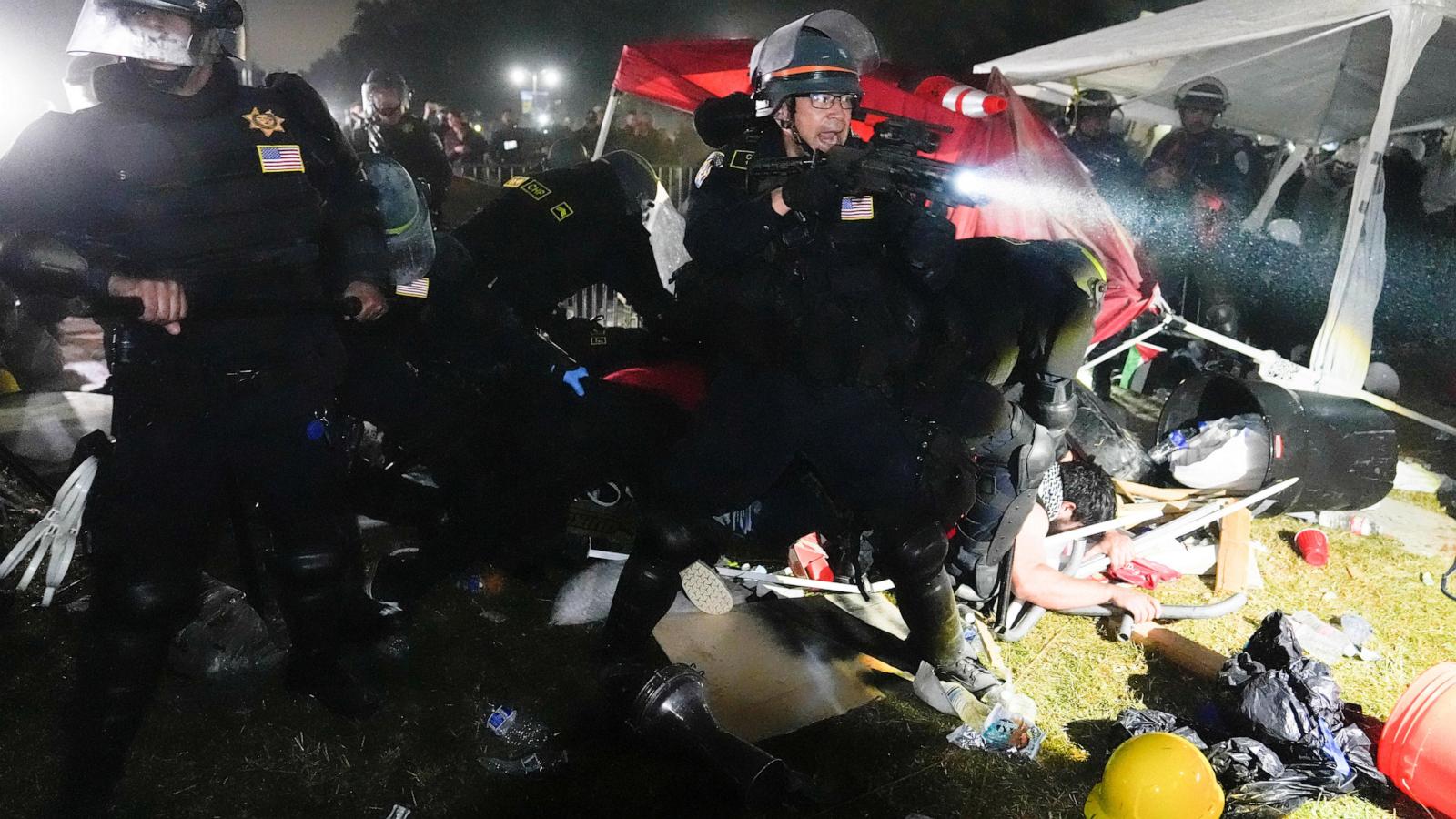Campus Conflicts: Universities Face Scrutiny Over Handling of Antisemitic and Anti-Arab Harassment
Are college campuses becoming battlegrounds? Recent events at several universities across the nation have ignited a firestorm, sparking serious concerns about the safety and well-being of students. From UCLA's chaotic spring protests to alarming incidents at other institutions, the issue of antisemitism and anti-Arab harassment on campuses is demanding urgent attention. This in-depth report delves into the escalating conflicts, the inadequate responses from some universities, and the steps being taken to create safer learning environments for all.
The Boiling Point: Campus Protests and Their Aftermath
The seemingly unending Israel-Hamas conflict has spilled onto American college campuses, igniting passionate—and often violent—protests. These protests have brought to light a concerning trend: an alarming rise in antisemitic and anti-Arab harassment. What started as expressions of political views escalated into ugly confrontations, hate speech, and acts of violence. One particularly troubling incident involved a pro-Palestinian encampment at UCLA that became a flashpoint for conflict, culminating in clashes between protestors and counter-protestors. This violence is not isolated, with reports flooding in from across the nation regarding instances of hateful rhetoric, threats, and physical attacks directed at Jewish and Arab students alike.
UCLA: A Case Study in Campus Chaos
UCLA's handling of the spring protests faced immense criticism. Hundreds of protesters defied police orders, resulting in chaotic scenes. Counter-protesters engaged in aggressive actions, highlighting the university's failure to provide a safe and inclusive environment. The reports detailing violence against Jewish students and the violent assault of pro-Palestinian protestors by counter-protesters are particularly disturbing. Reports highlight concerning behavior, such as protesters chanting "death to Israel" and "no peace until they're dead," as well as checkpoints excluding Jewish students. Muslim and Palestinian students also suffered from unwanted filming, doxing, and being followed, creating an atmosphere of fear and intimidation. These disturbing reports underscore the need for proactive measures to address such deeply troubling events and to ensure the safety and security of all students regardless of their religious beliefs or ethnic background. The fact that such extreme incidents occurred on a college campus raises deeply concerning questions about the safety of students at other educational institutions, highlighting the need for prompt and efficient action to prevent similar episodes.
Federal Investigation and Resolutions
Following numerous complaints from concerned students and faculty, the U.S. Department of Education's Office for Civil Rights (OCR) launched investigations into multiple universities. These investigations uncovered a pattern of inadequate responses to antisemitic and anti-Arab harassment. OCR concluded that some universities failed to respond "promptly or effectively" to reported incidents. Consequently, the department reached agreements with the University of California system and Brown University, mandating improved complaint reporting, thorough review of past incidents, and enhanced employee and police training on federal anti-discrimination laws. This decisive action reflects the growing need for accountability and emphasizes the Department of Education's commitment to upholding Title VI regulations which prohibits discrimination or harassment based on race, color, and national origin in federally-funded institutions.
Beyond UCLA: A National Problem
The issues are not limited to UCLA. Similar incidents, including antisemitic vandalism and targeting of students based on their religious beliefs, were reported at other University of California campuses, including Santa Barbara, San Diego, and Davis. The pervasive nature of the problem underscores the urgency for a systemic approach to address this national crisis, ensuring adequate support and training on all campuses, not just those that have experienced isolated instances of reported hate speech or physical violence. The long tail keywords related to this national emergency must be carefully explored by educators and law enforcement to effectively address these deeply disturbing events and to guarantee the wellbeing of all college students.
Moving Forward: Creating Safe and Inclusive Campuses
The agreements reached between the Department of Education and several universities mark a significant step toward creating safer learning environments. But these are only initial steps. Campuses need comprehensive strategies to prevent future incidents of antisemitism and anti-Arab harassment, not only react to incidents after they happen. These strategies must encompass education for staff, students and campus police on recognizing and addressing hateful behavior, coupled with robust reporting mechanisms that guarantee the proper action is taken when such incidents occur. The ultimate goal must be cultivating an inclusive atmosphere on campus where everyone feels safe, respected, and able to express their views without facing hatred and intimidation. The safety of students should be prioritized, ensuring that campuses offer an environment conducive to the pursuit of education and open discourse.
The Long Road Ahead
Addressing the complexities of campus conflict requires ongoing effort, not a short-term solution. Continued education for university personnel and law enforcement officers regarding Title VI compliance and strategies for handling such situations will remain paramount in creating a safe educational environment. The importance of proactive, preventative measures can not be emphasized enough. Creating a welcoming, inclusive space for all students must remain a core value, necessitating constant vigilance and commitment by every college and university.
Take Away Points
- The rise of antisemitism and anti-Arab harassment on college campuses is a significant issue requiring immediate action.
- The failure of some universities to effectively respond to reported incidents is unacceptable.
- Comprehensive measures are crucial for establishing a truly safe and inclusive environment for all students. A zero-tolerance policy should be implemented.
- Collaboration between universities, law enforcement, and the Department of Education is paramount to fostering positive change and building inclusive campuses. Open dialogues, understanding, tolerance, and acceptance of diversity of viewpoints must be cultivated at all times.




